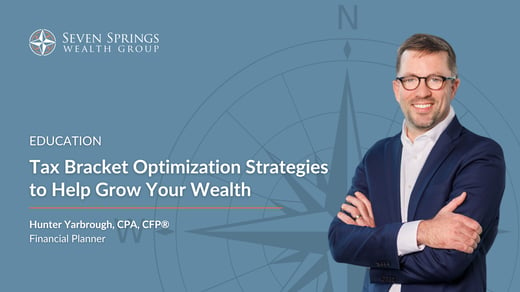Although there's no single path to a secure retirement, there are a few common questions that everyone can ask themselves before making the transition. After all, it's a big step that can change your day-to-day life in many ways. Asking these questions can help you develop a clear picture of what to expect when the day arrives.
When do I want to retire?
Obviously, you're the only person who can answer this and it all depends on what retirement means to you. Beyond not working, do you have a plan for your time? It's only natural to take some time to decompress – for many people, retirement is a reason to celebrate. But after that initial period of rest and recuperation is over, you may want to start the next chapter of your life. That's when doubts can sometimes creep in: will you get bored if you retired too early? Will you regret it if you retire too late? This is where it helps to have a clear understanding of how you plan to spend your post-retirement days. It could be traveling, picking up a new hobby, volunteering, spending more time with family… a vision for how you'll spend your time beyond simply "not working."
Will I have enough to retire?
The answer naturally depends on how much you're withdrawing from your retirement accounts and over how long a period. For decades, many people have abided by what's known as the "4% Rule" – a principle that suggests a 4% withdrawal rate (adjusted for inflation and rebalanced annually) could provide for a retirees' needs for the duration of an average retirement. For example, an initial investment of $1 million could provide an annual retirement income of $40,000 over an average retirement term of 30 years. Originally developed in 1994 based on research by financial advisor William Bengen, this principle has served as a benchmark for millions of Americans planning for retirement. He has since adjusted his conclusions and now believes investors can safely withdraw as much as 4.5% annually.
While this is a great place to start, everyone’s situation is different. For example, depending on the individual’s age at retirement (and remaining life expectancy), this rate may be higher or lower than 4.5%.
If you're concerned about having enough money set aside to ensure you won't outlive your retirement savings, it's a good idea to speak to a professional financial advisor. They can help you develop a plan and a process that will best use your savings over the long term.
How can I ensure that I’m smart with my money in retirement?
Once the “when” and “how much” questions are answered, the issue then becomes “how?” This is a topic that can (and does) fill countless books, blog posts, and newspaper columns with exhaustive explanations, but there are three primary questions that many near-retirees like to ask:
1. When should I have my mortgage paid off?
To start, what seems to make sense for most people is the peace of mind that can come with retiring without a mortgage. Unless an investor is very comfortable with having a mortgage after they retire, it may make sense to have it paid off before retirement.
2. What impact with Medicare and Social Security have?
Medicare and Social Security are federal programs for Americans who are (generally) no longer working. Medicare provides health insurance, while Social Security provides monthly benefit payments depending on the number of years you've paid into the system. Medicare starts at age 65, but you can choose to receive Social Security benefits as early as 62, or as late as 70. It’s important to remember that the longer you wait to receive Social Security, the higher the benefits will be.
3. Which investment accounts do I pull from first? And how are they taxed?
Generally speaking, people tend to use their non-qualified (or non-retirement) accounts first. This allows retirement accounts to continue growing tax-deferred or tax-free. Similarly, once you begin taking distributions from your retirement accounts, you may want to use your traditional (pre-tax) accounts first and allow your tax-free Roth accounts to continue growing. Depending on your income and relevant taxes, these rules may differ.
Retirement planning is an important and sometimes complex process but thoughtfully answering these and other relevant questions can help you achieve a retirement filled with exciting possibilities rather than doubt. If you have additional questions you’d like answered, reach out to our team of financial professionals today.
All investing involves risk, including the possible loss of principal. Nothing contained herein should be construed as individualized advice and is for informational purposes only. Different types of investments involve varying degrees of risk, and there can be no assurance that any specific investment will be suitable or profitable for a client's investment portfolio. Past performance is no guarantee of future performance. Seven Springs Wealth Group is an investment adviser registered with the US Securities and Exchange Commission (SEC). Registration does not imply any level of skill or training. For a complete discussion of Seven Spring Wealth Group’s services and fees, you should carefully review the firm’s disclosure brochure available at www.adviserinfo.sec.gov

March 26, 2025


